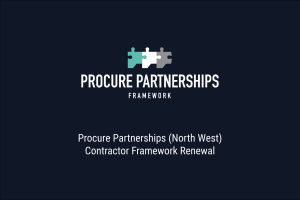In 2023, the construction industry witnessed a staggering 36% increase in insolvencies compared to pre-pandemic levels, underscoring the formidable challenges it has faced post-COVID.
Embarking on a construction project in the public sector demands meticulous planning, attention to detail, and, most importantly, a careful selection of contractors. One critical aspect often overlooked is the financial stability of potential contractors.
In this blog, we will delve into the significance of financial due diligence checks before committing to a contractor, what to look out for when conducting financial checks, and industry best practices that minimise risk for public sector clients.
Industry Standards for Reviewing Accounts
To maintain a high standard of financial due diligence, the construction industry follows specific protocols when reviewing the financial accounts of potential contractors. The industry standard involves a comprehensive analysis of financial statements, cash flow projections, and creditworthiness assessments. These evaluations provide a holistic view of the contractor’s financial health and help in making informed decisions.
Financial Checking Software
In the digital age, technology plays a pivotal role in streamlining processes, including financial due diligence. Several software solutions are available to assist in conducting thorough financial checks. Notable names include Dunn & Bradstreet and Credit Safe, offering reliable data on a contractor’s financial history, credit reports, and risk scores. Utilising such tools can significantly enhance the efficiency and accuracy of the due diligence process.
Bad Debt: What to look out for
The construction industry is grappling with challenges like rising inflation, soaring energy costs, and material shortages causing extended lead times and cost overruns. These pressures are being compounded by outstanding debts and stretched payment terms.
When reviewing a contractor’s financial accounts, it is crucial to focus on specific indicators. One essential metric to examine is the risk of failure score, which assesses the likelihood of a company facing financial distress. Additionally, pay attention to debt levels, cash reserves, and profitability ratios. A comprehensive evaluation of these factors will help in identifying any potential red flags and making informed decisions.
Options in the Event of Contractor Liquidation
Despite thorough due diligence, unexpected events can occur. If an incumbent contractor faces liquidation, project owners must have contingency plans in place. Options may include appointing a replacement contractor through a framework, negotiating with subcontractors to continue the work, or, in extreme cases, re-tendering the project. The key is to ensure minimal disruption and maintain project timelines while safeguarding public funds.
Best Practice to Minimise Risk
Financial due diligence is not merely a box to tick, but a crucial step in safeguarding the success of public sector construction projects. The statistics on contractor liquidations underscore the potential risks, making it imperative for project owners to adopt industry standards and carefully analyse financial accounts.
At Procure Partnerships Framework, we carry out detailed financial due diligence checks on all contractors on the framework in real-time, giving our clients the most up to date data on financial standing. As standard practice, we also carry out financial checks on all subcontractors assigned to our projects. By doing this, we can mitigate risks, save unwanted costs, and ensure project stability.
If you’d like more information on how we can support you in procuring a contractor with demonstratable financial standing, please drop me an email at: chris@procurepartnerships.co.uk

Chris brings a wealth of experience cultivated over a decade of dedicated service within the public sector. His role involves providing unwavering support to public sector clients, aiding them in procuring main contractors for projects ranging from £50k to £100m+.



